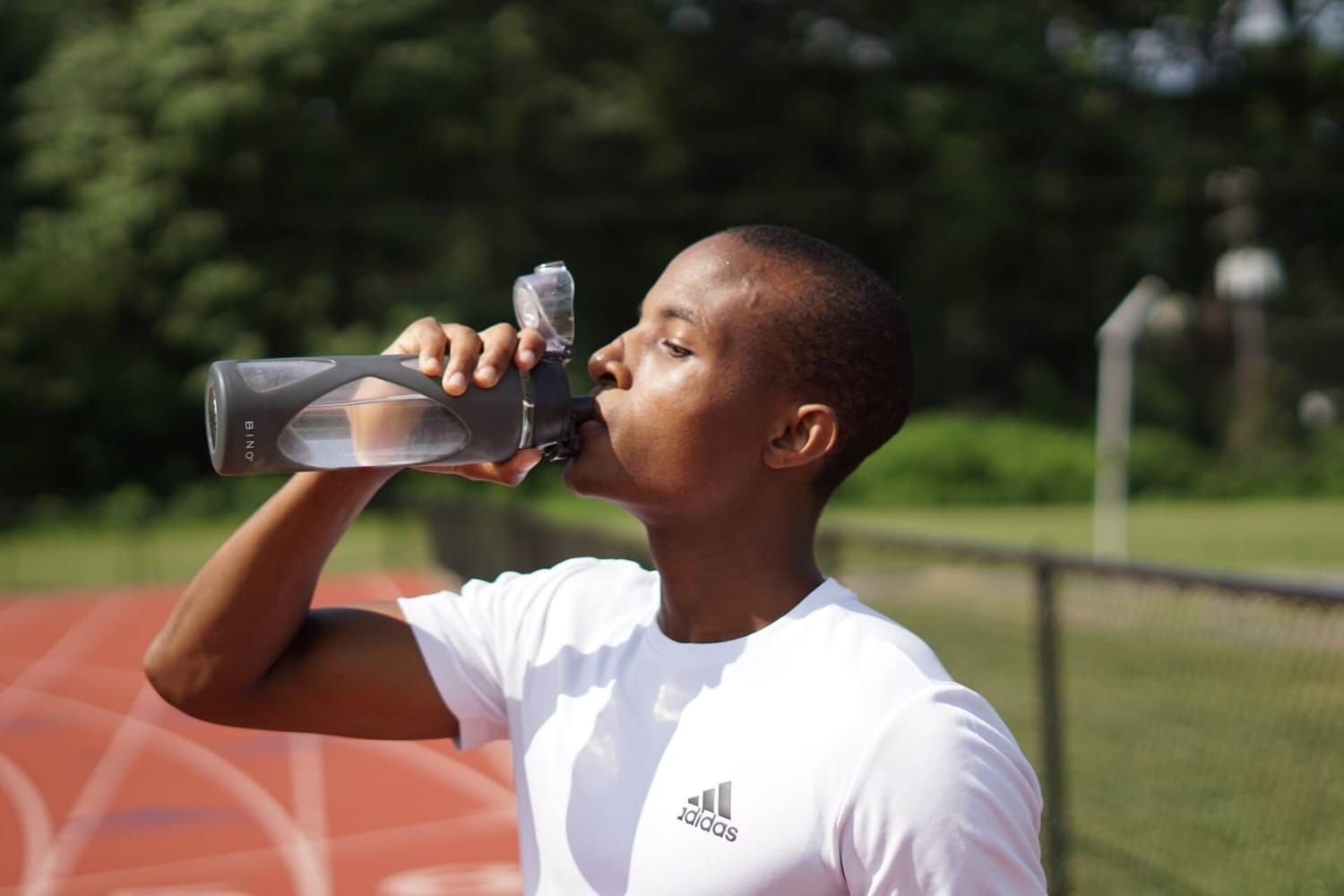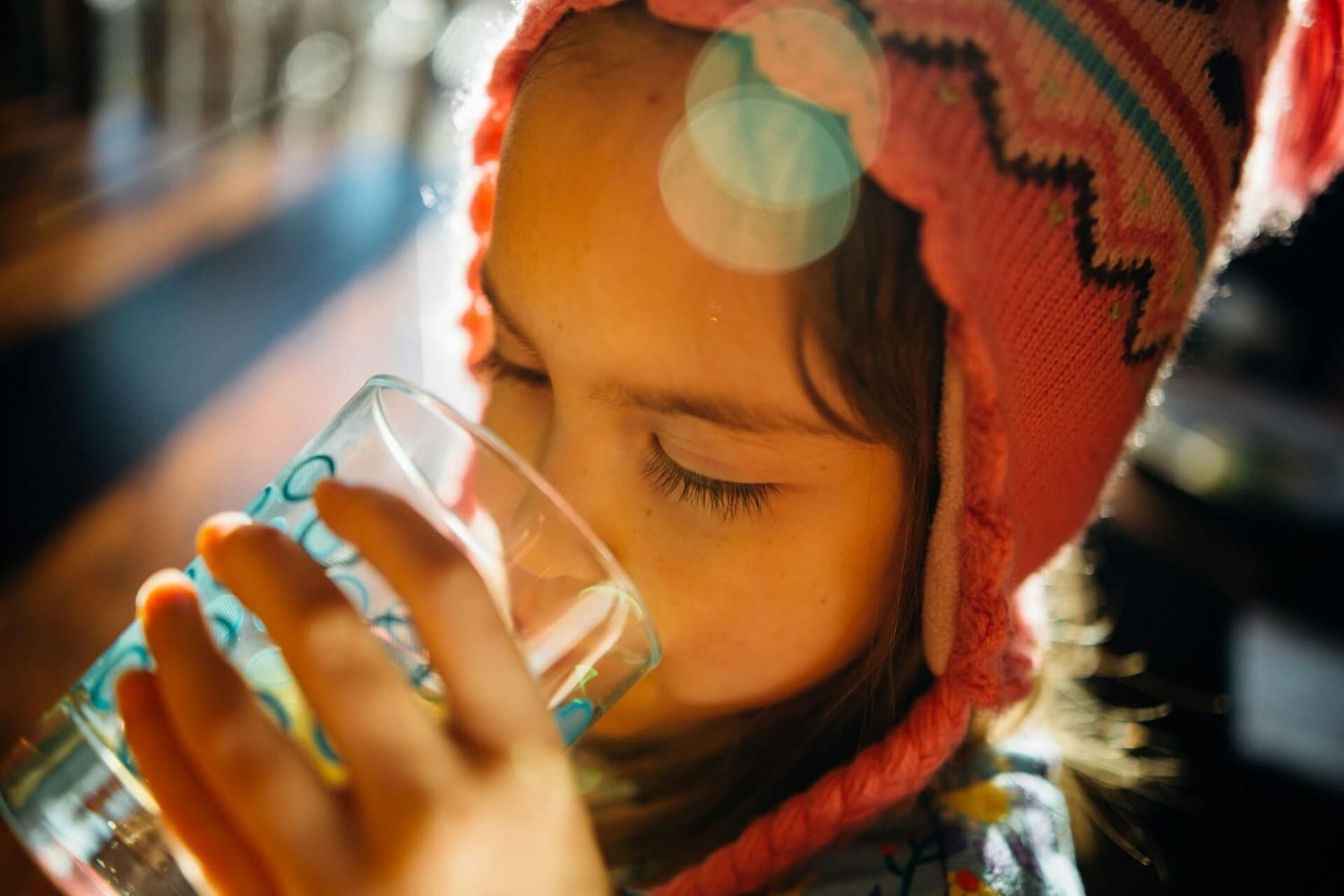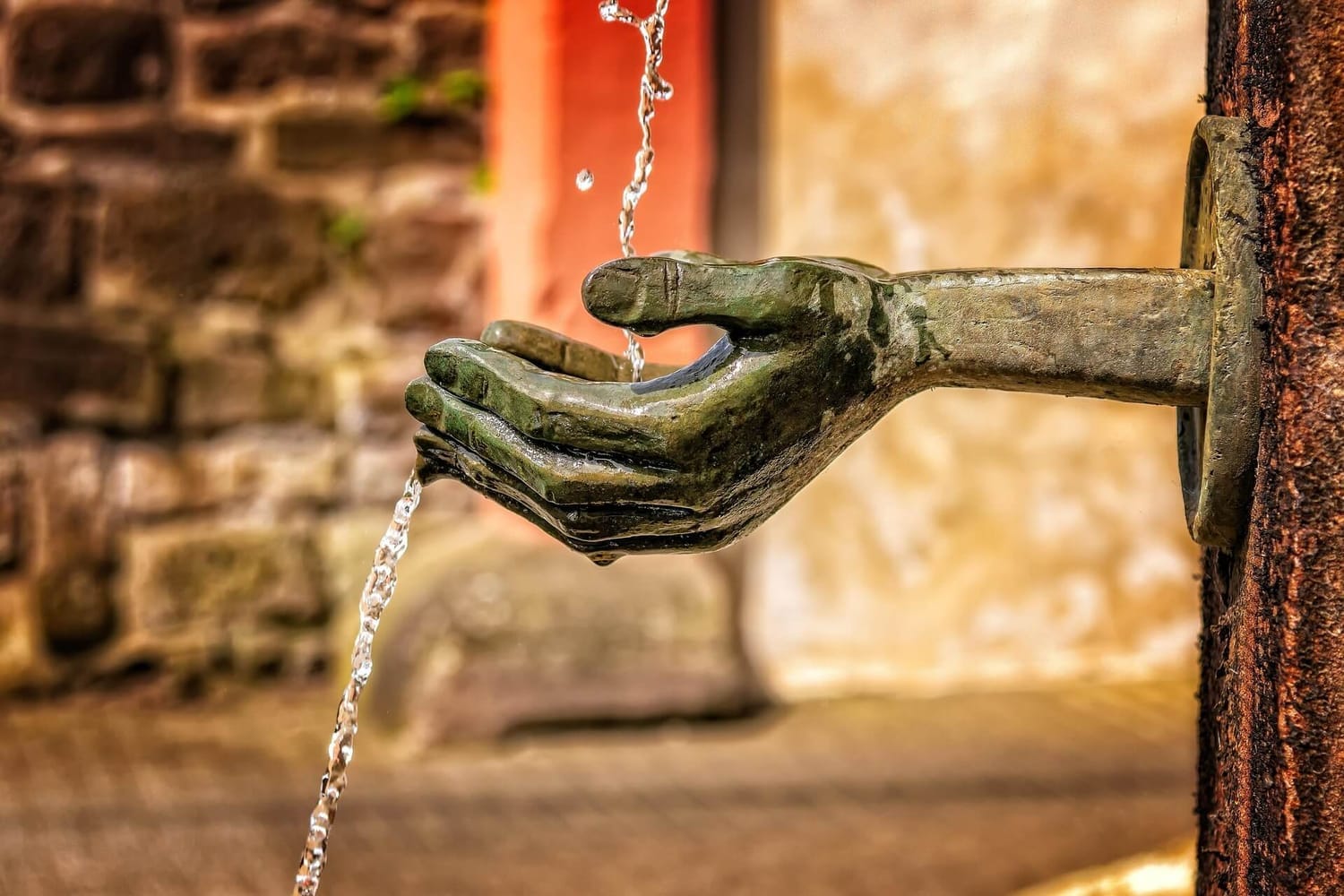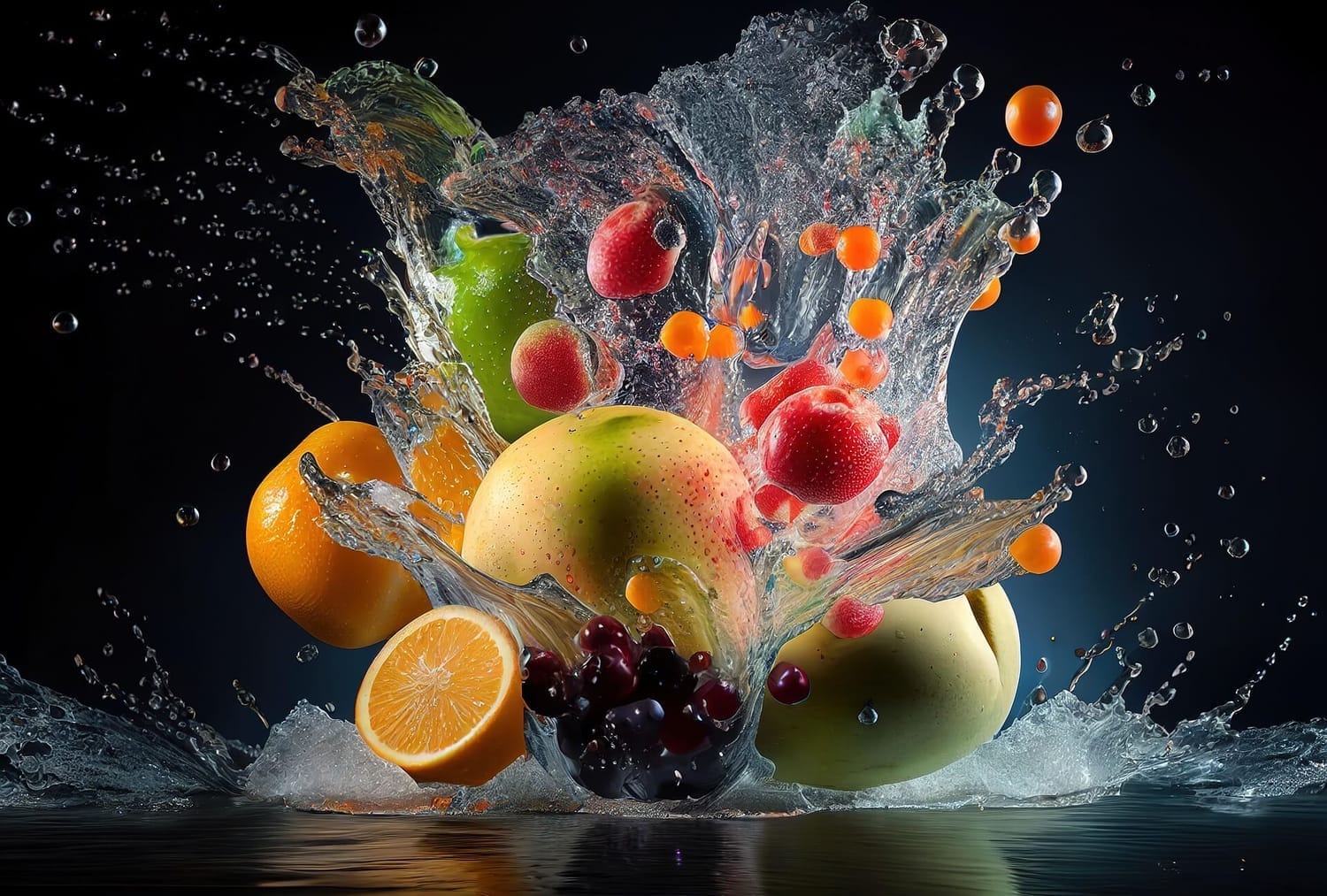Water
Nobel laureate and Indian physicist Sir C.V. Raman called water the elixir of life. It truly is just that.
In each moment of life, your body relies on water to perform countless essential functions to keep you healthy, energized, and functioning at optimal levels.
Yet many of us don't give much thought to our hydration until we're already feeling thirsty – and by then we are already behind the curve.
Your body is essentially a water-based organism. Water makes up about 50-60% of your total body weight as an adult, though this percentage varies by age, sex, and body composition.
Babies are about 74% water, but this decreases over time as they develop more fatty tissue and less lean muscle mass.
This percentage highlights how fundamental water is to every aspect of your biology. Every cell, tissue, and organ in your body depends on water to function properly.
Think of water as the medium that allows all of life's essential processes to happen smoothly. Let’s look at some of the jobs water does for your body.

Temperature Control: One of water's most important jobs is keeping your body temperature stable – around 98.6°F [37°C]. Without enough water, your body can't produce adequate sweat, putting you at risk of heat exhaustion or even life-threatening heat stroke.
Cellular Function: At the cellular level, water serves as the primary solvent for all biochemical reactions. The gel-like substance inside your cells [called cytoplasm] is primarily water, creating the ideal environment for cellular components to do their work, such as nutrient absorption and transport of substances in and out of cells.
Blood Circulation: Your blood is about 90% water, which gives it the fluid consistency needed to flow efficiently through your blood vessels. This watery blood carries oxygen, nutrients, hormones, and waste products throughout your body.
Dehydration can lead to higher blood pressure and reduced delivery of oxygen and nutrients to your organs and tissues.
Joint Protection and Lubrication: Water is a key component of synovial fluid, the substance that lubricates your joints and allows smooth, pain-free movement. Proper hydration keeps this fluid at the right consistency, reducing friction between bones and preventing joint pain.
Water also helps cushion vital organs like your brain and spinal cord. The cerebrospinal fluid that surrounds these crucial structures is primarily water and acts as a protective shock absorber.
Digestion and Nutrient Absorption: Your digestive system relies heavily on water at every step. It starts in your mouth, where saliva [which is mostly water] begins breaking down food and makes swallowing easier. In your stomach, water helps mix food with digestive juices, and in your intestines, it aids in nutrient absorption.
Water also keeps your digestive system moving smoothly by softening the stool and preventing constipation. When you don't drink enough water, your colon absorbs more water from waste, leading to hard, difficult-to-pass stools.
Waste Elimination: Your kidneys work around the clock to filter waste products from your blood, and they need water to do this effectively. Adequate hydration helps your kidneys flush out toxins, excess minerals, and metabolic waste through urine. Water also supports waste elimination through sweat and bowel movements.
When you're well-hydrated, your urine should be pale yellow or nearly colorless. Dark urine is often a sign that your kidneys are conserving water because you're not drinking enough.
Cognitive Function and Mood: Your brain is about 75% water, so it's particularly sensitive to hydration levels. Even mild dehydration can impair concentration, memory, and decision-making abilities. Research shows that even slight dehydration can negatively affect your mood, leading to irritability, anxiety, and fatigue.

Dehydration occurs when your body loses more water than it takes in, and the effects can range from mildly uncomfortable to life-threatening.
Your body will signal when it needs water, though by then, you're already mildly dehydrated. Early signs include:
Feeling thirsty
Dry mouth and lips
Fatigue or low energy
Dizziness or lightheadedness
Dark-colored urine
Urinating less frequently than usual
Dry skin
Headaches
Even mild dehydration can significantly impact how you feel and function. You might experience:
Decreased physical performance and endurance
Poor concentration and mental fog
Mood changes, including irritability and anxiety
Reduced alertness and reaction time
Muscle cramps
Constipation

When dehydration becomes chronic—meaning you consistently don't drink enough water over weeks, months, or years—the effects become more serious:
Kidney Problems: Chronic dehydration forces your kidneys to work harder to concentrate urine and conserve water. This can lead to kidney stones, urinary tract infections, and potentially kidney damage over time.
Cardiovascular Stress: Your heart must work harder to pump thicker, more concentrated blood, which can contribute to high blood pressure and strain your cardiovascular system.
Digestive Issues: Persistent dehydration often leads to chronic constipation and can impair your body's ability to absorb nutrients effectively.
Immune Function: Some research suggests that chronic dehydration may weaken your immune system, making you more susceptible to illness.
Accelerated Aging: Studies indicate that people who stay well-hydrated throughout their lives may age more slowly and live longer than those who are chronically dehydrated.
Severe Dehydration: In extreme cases, severe dehydration can cause conditions that require immediate attention and can be life-threatening:
Confusion and disorientation
Rapid heartbeat
Fainting
Seizures
Kidney failure
Shock

The good news is that dehydration can be prevented and reversed easily enough.
How much water do you need daily? You will find all kinds of guidelines, and in the end, you can just decide for yourself through experimentation and practice.
The 8-10 glasses a day rule is a good starting point, and you can adjust as you see fit. The important thing is to make hydration a daily practice and drink quality water.
Here are some factors and recommendations to consider:
About 15.5 cups [3.7 liters] of fluids daily for men and 11.5 cups [2.7 liters] for women.
In the first 10 hours of your day, drink 8 ounces per hour on average.
Aim for half your body weight in ounces [a 160-pound person should drink about 80 ounces of water daily].
Increase intake when exercising or sweating more than usual.
Hot or humid weather increases your fluid needs.
Fever, vomiting, or diarrhea require extra fluids.
Water intake can also come from foods – include plenty of fruits and vegetables, such as:
Watermelon, cantaloupe, and grapes
Cucumbers and lettuce
Strawberries and other berries
Oranges and other citrus fruits
Spinach and leafy greens
Caffeinated drinks like coffee and tea have diuretic effects, and alcohol promotes dehydration. These should be limited or eliminated for the best results.

The key to good hydration is making it a natural part of your daily routine. Start by identifying times when you can easily add more water consumption.
Your body is constantly losing water through breathing, sweating, and other normal processes, so consistent replenishment throughout the day is more effective than trying to catch up with large amounts at once.
By understanding how vital water is to every aspect of your health and implementing these practical strategies, you can ensure your body has the hydration it needs to function optimally.
Your improved energy levels, physical performance, mental clarity, and overall well-being will be the great reward.
Cheers.

References
Why Is Water So Important? Benefits of Drinking Water
Water: How much should you drink every day? - Mayo Clinic
16 Reasons Why Water Is Important to Human Health
Examining The Vital Role Of Water In Bodily Functions And Survival
Body Water Percentage: Average, Ideal, How to Maintain and Determine
What Should You Drink? – Mark Hyman, MD
How to Properly Hydrate & How Much Water to Drink Each Day | Dr. Andrew Huberman
Drinking Water Is NOT the Best Way to Stay Hydrated
What would happen if you didn’t drink water? - Mia Nacamulli
Hi, I'm Ellen...
... and I am a writer, coach, and adventurer. I believe that life is the grand odyssey that we make of it.
I would like to help you live a truly magnificent and happy life no matter your age and current situation.
You deserve to experience your hero’s journey to its fullest.
What are you waiting for?
There is only now and the next choice.
Subscribe to my email list here
your privacy is protected and you can unsubscribe any time
Subscribe to the Triumph and Grace newsletter
your privacy is protected - unsubscribe any time

